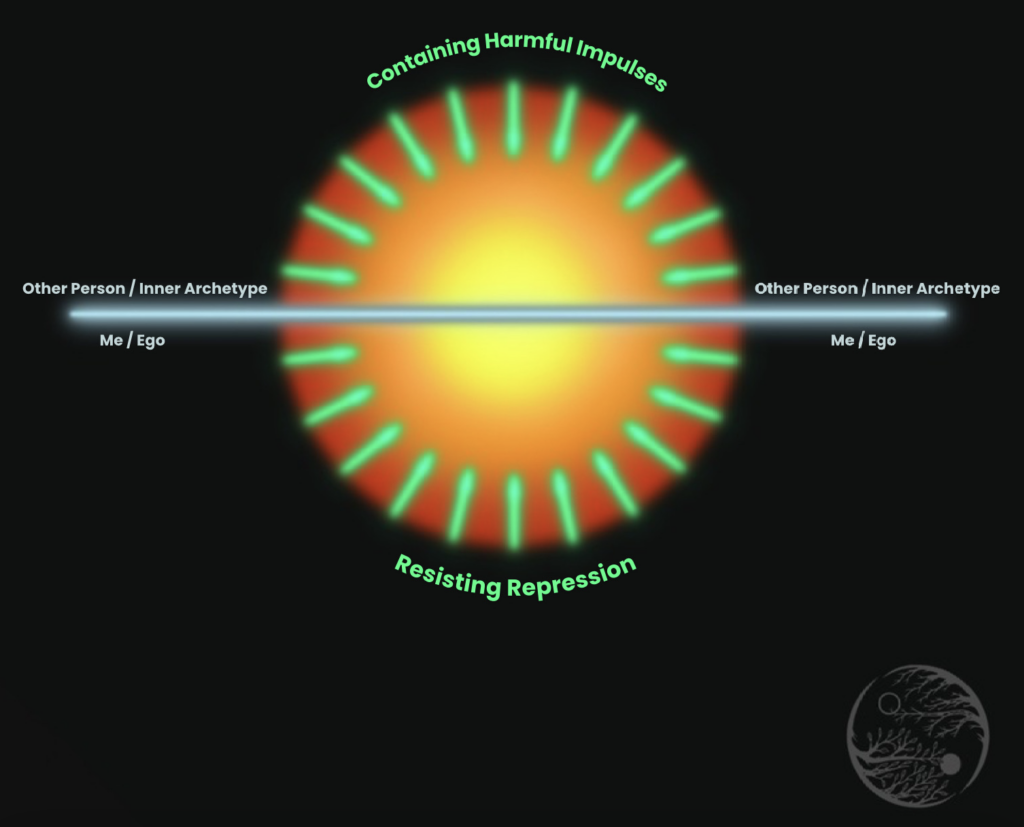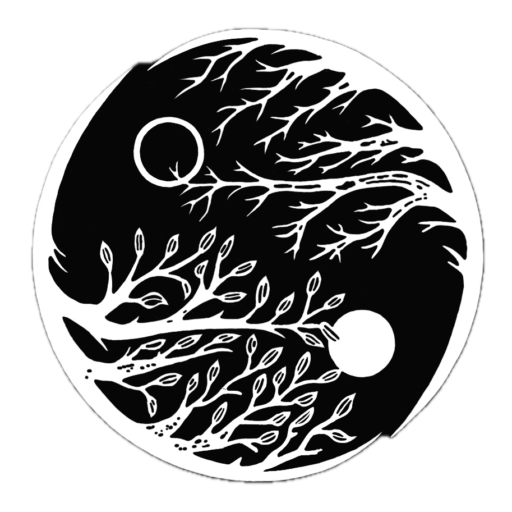Containment vs. Repression
A Jungian Perspective on Building Harmony Within and Without

In a world that increasingly drifts away from the frameworks of religion, a critical question emerges: How should we live now? Without the moral boundaries once set by faith, there’s a danger of treating life as an endless buffet, where our desires run unchecked and others bear the cost. This dilemma leads us to explore the nuanced difference between Containment and Repression—two concepts that hold profound implications for our inner and outer worlds.
The Unfair Reality of Human Nature
The world has never been fair. Random factors like genetics, cultural upbringing, and economic privilege divide humanity into two groups: those who wield power and those who endure its abuse. This brutal reality reveals an inherent tension in human nature—our insatiable craving for more. More wealth, more power, and, for the privileged, the ability to exploit others as if life were an All You Can Eat restaurant.
But what happens when these cravings inflict pain on those around us, including those we care about? Blocking these impulses may feel like repression, yet unbridled indulgence leads to harm. This delicate balance is where containment and repression come into play.
Containment vs. Repression: A New Perspective
Containment involves holding back impulses or desires that, if acted upon, would cause pain to others. It’s a conscious choice rooted in compassion and ethical responsibility. In contrast, Repression is the suppression of pain or negative emotions inflicted upon us by others. Repression often stems from fear or societal pressure, forcing us to bury emotions that should be acknowledged and confronted.
The distinction is crucial:
• Containment is about preventing harm to others.
• Repression is about denying harm done to us.
The Role of Pain in Life
Pain is an unavoidable part of existence. Life’s complexity ensures we will face accidents, illnesses, and losses. However, pain becomes particularly difficult when inflicted by others—especially those we love. Is it healthy to repress this pain, sacrificing ourselves for the sake of harmony? Or should we resist repression and confront the source of our suffering?
A Jungian Lens on Containment and Repression
Carl Jung’s psychology offers a profound framework to explore these concepts. Containment, when applied to the Shadow—the darker, unconscious aspects of ourselves—prevents harmful projections onto others. Repression, however, occurs when we fail to confront our own Shadow, leaving unresolved pain to fester in the unconscious.
The Shadow and Its Projections
Consider the example of bullying:
• The victim, if they repress their pain, may develop a Shadow filled with anger, aggression, and unresolved trauma. Without confronting their Shadow, these emotions manifest in unhealthy ways, perpetuating the cycle of pain.
• The perpetrator, if they fail to contain their Shadow, projects their own inner wounds onto others. This lack of containment often stems from unresolved traumas or a narcissistic Ego that prioritizes its desires over others’ well-being.
In both cases, a failure to address or contain the Shadow creates dysfunction in relationships and personal growth.
Jungian psychology emphasizes the process of individuation—the journey toward self-realization and wholeness. This process requires balancing our inner and outer worlds, reconciling our Ego with archetypes like the Shadow and the Anima/Animus.
Encountering the Shadow
Meeting the Shadow is only the first step in individuation. The Shadow acts as a gatekeeper to deeper levels of the psyche, where we encounter the Anima (for men) or Animus (for women)—the archetypes representing the feminine and masculine aspects of the soul.
Unhealthy expressions of these archetypes can harm our relationships:
• Unhealthy Anima qualities include moodiness, emotional instability, and manipulation.
• Unhealthy Animus qualities include aggression, dogmatism, and hypercriticism.
However, their healthy counterparts—compassion, intuition, creativity (Anima), and confidence, leadership, discipline (Animus)—are essential for personal growth and harmonious interactions.
Containment and Individuation
To achieve individuation, the Ego must engage in a continuous dialogue with the Shadow, Anima/Animus, and the external world. Containment plays a vital role here:
• Containing harmful impulses arising from the Anima/Animus ensures we don’t project negativity onto others.
• Resisting repression allows us to confront and integrate past traumas, fostering inner harmony.
The Journey to the Self
Individuation is a lifelong process that requires dedication to self-awareness and emotional regulation.
By mastering containment and overcoming repression, we align our Ego with the deeper forces within us, achieving a balance that not only benefits ourselves but also those around us.
In a world untethered from religious morality, containment and individuation offer a new framework for ethical living. They guide us to embrace our humanity—flaws and all—while striving for a harmonious coexistence with both our inner and outer worlds.
Key Takeaway: Life is not an All You Can Eat restaurant. It’s a delicate interplay of desires and responsibilities, where containment of harmful impulses and the rejection of repression pave the way to true freedom and self-discovery.

